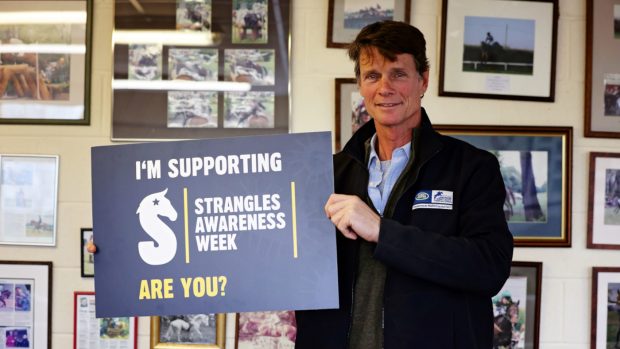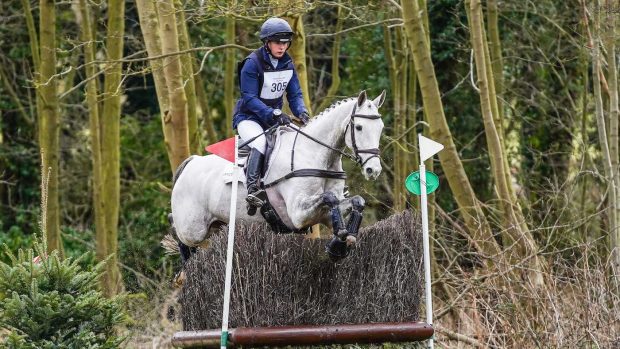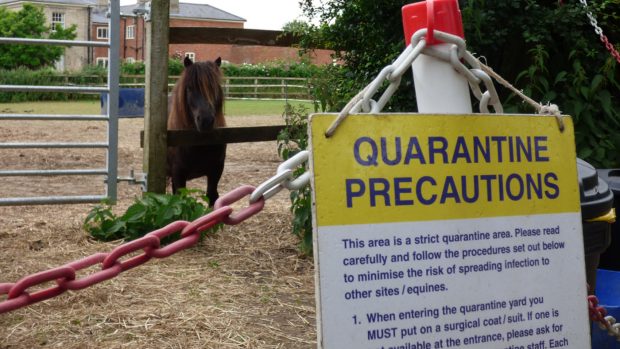Animal health company Intervet UK Ltd has launched the first strangles vaccine in the UK.
Strangles is the most common diagnosed bacterial infection in horses. The name is grimly apt: the bacteria cause the lymph glands on a horse’s head and neck to swell, restricting its airways and making it harder to breathe.
Although seldom fatal, strangles is very debilitating and highly contagious — especially among foals. It takes a long time for horses to recover and they are at risk from unpleasant complications, such as bleeding from the limbs, eyelids, and gums.
The new vaccine, Equilis StrepE, helps reduce both incidence and severity of the disease, although it does not guarantee complete immunity.
“No vaccine ever provides 100% protection,” says Alasdair King, senior veterinary advisor at Intervet UK. “With this, we expect at least 75% of horses not to show any sign of the disease and the remaining 25% to get some mild signs, but no abscesses.”
Strangles vaccines have long been available in countries such as the United States and Australia, but this is the first time one is released in Britain. “The UK and Europe have very tight rules — tighter than other country — which is why no vaccine was available here until now,” explains King.
It has taken Intervet 12 years to develop this version. Most strangles vaccines available abroad contain dead bacteria, which give a weaker immune response, whereas the Intervet vaccine uses a live modified strain of the strangles bacterium.
“With strangles, it is very difficult to get a good immunity, so we reckoned that the best way was to use live bacteria and make sure they couldn’t survive,” says King.
The Intervet vaccine is also administered in an innovative way through an injection into a horse’s upper lip. “It’s a completely unique method, in that a very small volume of vaccine is given with a very fine needle that goes only 2mm into the lip,” says King. ‘Because of these factors, horses hardly notice it at all.”
The vaccination gives immunity to strangles for three months. When horses and foals are vaccinated for the first time, they must get two shots four weeks apart. After that, boosters should be given every quarter to horses at high risk of contracting strangles, such as those who live in an area where outbreaks occur frequently.
Horses at medium risk can be vaccinated every six months, but they need to get a booster shot if an outbreak takes place and it has been more than three months since the last vaccination. There is no need to vaccinate horses that rarely have contact with others, because strangles is transmitted by horse-to-horse contact or via shared tack, tools and water troughs.
The risk of reactions to the vaccine is very limited, according to King. “The main thing an owner would expect to see when the vaccine is administered for the first time is a slight swelling to the lip, but it doesn’t bother [horses] at all. Their demeanour remains good.”
Owners who believe their horse would benefit from receiving the vaccine should speak to their vet.
Assessing the risk
High-risk situations — vaccinate every three months.
- Horses kept in premises where strangles has been diagnosed in the past
- Horses kept in groups, where new horses of unknown origin are regularly added
- Horses kept in an area where strangles outbreaks are known to occur
Medium-risk situations — vaccinate every six months but give a booster if an outbreak occurs and it has been more than three months since the last vaccination.
- Horses residing in stables with other horses, but there are no other horses introduced into the group regularly
- Horses frequently travelling to shows or competitions
Low-risk situations — No need to vaccinate.
- Very little contact from other horses




